I meant to write this up yesterday - but I had to pop into work to do some stuff and I'm walking like John Wayne because of the physio treatment I had on Thursday...which is not that conducive to blogging, or even sitting down at the moment! Useful!
I can't even sleep on my back right now because it feels like I had an elephant on a pogo stick breaking the world record for how long an elephant can bounce on a pogo stick for on my back - owwww!
So I pretty much felt like death yesterday after coasting myself home from work in my beautiful car with a really light gear box and power steering.
I've then laid in bed today (on my side!) writing this blog, again on my trusty notepad!
Basically, I've remembered that I completely forgot to mention quite an intrinsic element of my project - a small, but 'dealable' issue that I had with interviewing people while over in America.
It wasn't really that much of an issue, because as you know, I got the interviews done and they're great.
I have to thank the others for how hard they worked for my interviews and for me.
But something that cropped up is the point of language differences.

Although we all had to have a 'proficiency' in English for this whole music project to work in the first place, there were still barriers caused by differences in language and consequently understanding.
I find this very interesting as the entire project is about 10 people communicating and working together and trying to prove that 10 people from different cultural and ethnic backgrounds can work together and create something collaboratively.
I think we are proving this.
Musically, we all speak the same language, and we all speak it fluently. It means that we can pick up our instruments, or anything lying around as we quite often did (!) and communicate through music.
We all connected to each other's train of thought whilst playing and understood what we all were meaning, picked up on those threads and communicated/interacted with that and indeed each other.
Part of the idea behind the Counterpoint of Tolerance project is however, deciphering how we (people of the world) get ourselves into divisions and sometimes conflict because of these divisions, and how we (the Counterpoint of Tolerance team) can dissect that and find a way somehow of interaction without those divisions.
But even we have divisions, although they've never developed into conflict. Instead we've just had to find ways of agreeably working around these divisions, which sometimes are more timely to find than others, but we always found (hopefully) a solution that pleases everyone.
The main 'division' (if you want to call it that) is that of language. Myself, Alex, Michael, Martine and David are the only ones for whom English is our 'native' tongue - that's less than 50% of the team. I'm certainly not saying that this is wrong, I don't believe that everyone in the entire world should speak and understand English - that would be wrong.
Even between us 'native-English-speakers' however, there were things that we may have to explain in an additional manner because of nuances in British English and American English, and differences between those cultures (like the whole bar = measure, quaver = eighth note thing...I still have to think twice when I work that one out and try to remember that!!)
Elsewhere, Jxel, Ivan, Syrse and Claudio for example all speak Spanish fluently - and could easily communicate with each other. Then however, there are differences and specific nuances attached to Spanish spoken in Mexico, Spanish spoken in Argentina and Spanish spoken in Spain.
This ultimately meant that in conversations between Jxel, Ivan, Claudio and Syrse there were hiccups in understanding - namely something (usually very small and inconsequential..and sometimes rude (hehe!!)) had to be gone over again and approached in a different way or explained differently.
Doo Jin from South Korea could read English well, but often found it hard to express exactly what he wanted to say to everyone (and I hasten to add no-one spoke any Korean to speak of). I felt really sorry for Doo Jin, because I think he was getting rather frustrated at this limitation being put on our verbal communication - I would if I were in his position.
Noticeably though, during the two weeks we were out there, the more we all talked together (which we did ALOT!), and got used to each other's ways of saying things in whatever version of English was available, verbal communication did flow more smoothly than before.
But it was still no smooth chocolate fountain.
 I have to admit that I found it difficult to communicate (which for those who know me - know that's very unusual ("the girl who'll never have dead-air on the radio" ahem!!)
I have to admit that I found it difficult to communicate (which for those who know me - know that's very unusual ("the girl who'll never have dead-air on the radio" ahem!!)Please don't get me wrong - this is no-one's fault and I'm certainly NOT complaining, but it was immensely tiring trying to think of a number of different ways of explaining one thing, and meaning the same thing, and even then, you don't know whether someone entirely understands, or indeed if something was being explained to me, if I entirely understood.
It was really frustrating! Especially as because we all get on so well, all we want to do is share each other's experiences, talk to each other (about pretty much anything!) and really enlighten ourselves by knowing everyone. In some ways, rather upsettingly actually if you really think about it, in an ultimate way - this just can't be done.
What this showed me though was that universal understanding of something being communicated did not run fluently, and, maybe in another type of situation, could have lead to real divisions and maybe conflict. It demonstrated the limitation of verbal communication to effectively mediate interaction between people, even very similar people like us.
Musically, this hurdle was jumped with Olympic ease, as, if one of us was trying to verbally explain an idea we had, and the universal comprehension was in doubt - we just leapt on an instrument and played it, and also normally reverted to some onomatopoeic, crazy aural way of mimicking what we were trying to describe (I like to call it conductor singing - you always end up using your voice to sound like some castrated mallard to sound like an oboe or something! (apologies to oboists - you do honestly have beautiful sounding instruments!))
But that's really the point isn't it? (and no not that we all have to sound like castrated mallards - although, what an insult that could be to throw at someone..! I digress sorry!)
Music can communicate universally. You don't have to play something. You don't even have to be able to read music. You don't see it anyway. Instead it's a sensual communication which taps into your psyche and tweaks some kind of interactive synapse of understanding. You hear a sad piece for example, and instantly, you may not feel sad, but you connect with the feeling of feeling sad - which is ultimately understanding. And those sitting around you listening to the same piece will also connect with that feeling of feeling sad and various conjugations around that sense, and so on and so forth.
I don't know why I picked sad then - how remarkably depressing! Sorry!
Music moves you and people collectively in a way in which verbal language cannot always achieve (in my opinion - do correct me if you think differently - I'd be really interested to hear people's thoughts on this.)
And ultimately, you must be moved to actually understand something. Understanding something is a process in which you have to connect with something to comprehend the mechanics and sense and existence of the thing.

So how does this all connect to my interviews? (haha - HOW LONG HAS IT TAKEN ME TO MAKE MY POINT?!!)
Well, if you think about communicating with someone who doesn't naturally speak your language, it's sometimes difficult as it is. Now put that in the context of trying to interview the same person. Although I succeeded and everyone was happy with what they had expressed, this type of interviewing process was one I'd never had to do before. I had to try and make my questions, with the aims of opening up areas through the questions that I wanted people to talk about, comprehensive and accommodating enough to mediate an honest and satisfying response (from both my perspective and that of the people I was interviewing.)
This was really hard and quite tiring. I found I had limitations in my way of expressing a question compared to their way of understanding. It's not that I was asking particularly hard questions, because I wasn't, and all the interviews were basically about their experiences. What happened though was that after asking the questions, if there was a struggle of putting their answers into spoken English - I couldn't advise them or suggest words or phrases. That would have been putting words into their mouths - which completely destroys the concept of objectivity in journalism. AND I had no guarantee that the words I was thinking of would have matched what they were actually trying to say.
Bothersome to say the least.
And again - I stress, it's no-one's fault and it's certainly not a limitation of intellect or anything of such sort.
It's just something that had to be tackled and somehow resolved. How I did it, was just rephrasing questions, making it much more conversational (even more than I do usually) and checking that this is really what they meant.
It just struck me as rather intriguing the way this all transpired. Before I went to America, this did crop up in my mind, and I had contingency plans in my head anyway, so it wasn't difficult to adjust ways of interviewing, but I just found that it's a whole different ball game when you're actually there doing the interview and trying to make sure that people got their fair say.
Talking of fair - it does seem a little unfair that it had to be in English. An idea that's just struck me is that perhaps if I'd asked them to interview in their native languages I may have a more personal account from each of our team. Then however, I'd have the difficulty of the fact I don't speak half these languages (just my lil' ol' French A-level, lil' bit of Italian and swearing in Cantonese...) so even if they'd responded in their native tongue, my questions would have still had to have been in a language that to the interviewee is foreign...
Also, I'm thinking that as I plan to use their voices a lot in the documentary - would it really work for an English audience to constantly have a different language going on in the background and another voice in English dubbed over to translate? Not to mention the issue of translating it in the first place - which even without my permanent job at the radio station I don't think I would have enough time for, AND think of that well known phrase "Lost in Translation"...would a translated interview really be any more accurate than one just done in English?
OK, I think I made the right decision.
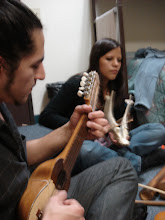

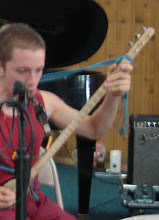
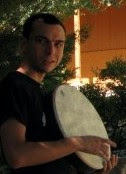






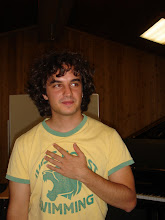
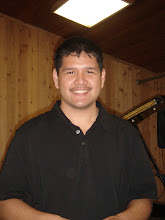
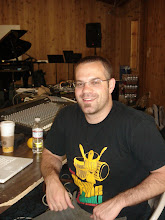
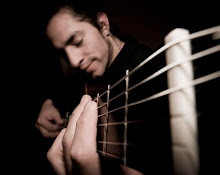.jpg)
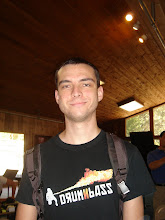
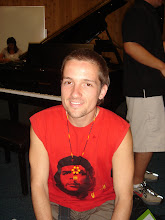

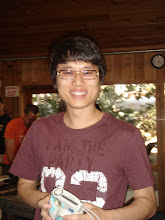


No comments:
Post a Comment